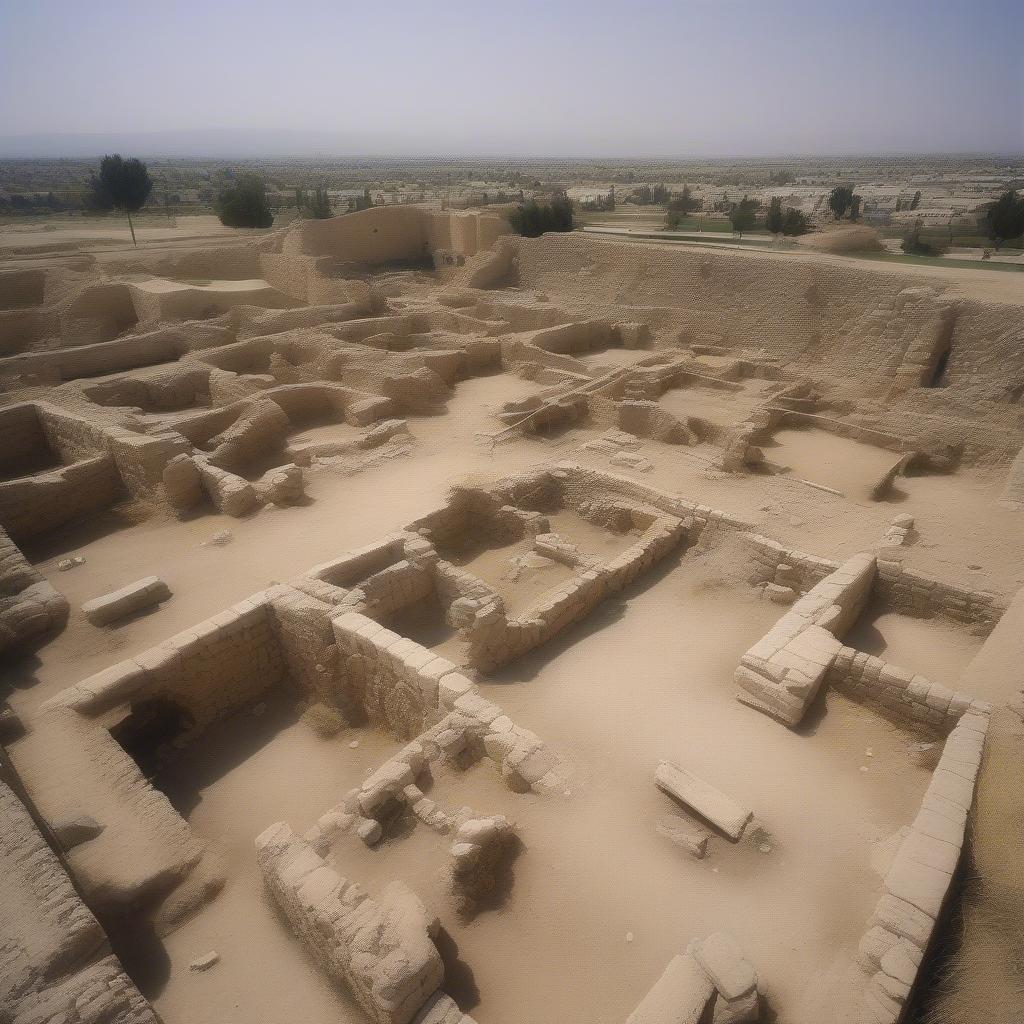Abraham, a pivotal figure in the Bible, is revered as the patriarch of the Abrahamic religions: Judaism, Christianity, and Islam. His story, a compelling narrative of faith, obedience, and covenant, unfolds primarily in the Book of Genesis, chapters 11-25. Understanding who Abraham was in the Bible requires delving into his life’s journey, his unwavering faith in God, and the enduring legacy he left behind. Abraham’s life was a testament to his belief, earning him the title “Father of Faith.” But who was this man chosen by God?
Table Content:
Abraham’s Early Life and Call from God
Initially named Abram, he was born in the Mesopotamian city of Ur, a bustling center of pagan worship. His father, Terah, was an idol maker. However, God called Abram to leave his homeland and family, promising to make him a great nation and bless him abundantly. This divine call marked a turning point in Abram’s life, demanding an immense leap of faith. He was seventy-five years old when he embarked on this uncertain journey, demonstrating remarkable obedience to God’s command. This pivotal moment in Abraham’s life highlights the immense trust he placed in God’s promise.
The Covenant with God: A Promise of Land and Descendants
God’s covenant with Abraham formed the cornerstone of his relationship with the patriarch. God promised to make Abraham the father of a multitude of nations, to give his descendants the land of Canaan, and to bless all nations through him. This covenant, sealed with circumcision as a sign, was not merely a contractual agreement but a deeply personal bond between God and Abraham. The land promised to Abraham and his descendants played a significant role in shaping the history of the Israelites. It was a promise of a homeland, a place where they would flourish as a nation.
Tests of Faith: Sacrifice of Isaac and Hospitality to Strangers
Abraham’s faith was tested repeatedly. Perhaps the most profound test was God’s command to sacrifice his son, Isaac. This agonizing trial demonstrated Abraham’s unwavering devotion to God, his willingness to surrender even his most precious possession in obedience to divine will. Though ultimately spared the sacrifice, the event solidified Abraham’s reputation as a man of unparalleled faith. This story is often interpreted as a foreshadowing of the ultimate sacrifice of Jesus Christ in Christian theology. Another significant test was Abraham’s hospitality towards three strangers, unknowingly entertaining angels. His generous welcome, a reflection of his deep-seated faith and respect for God’s messengers, resulted in the miraculous promise of a son, Isaac, despite his and Sarah’s advanced age.
Abraham’s Legacy: Father of Faith and a Multitude of Nations
Abraham’s impact extends far beyond his lifetime. He is recognized as the father of faith by Jews, Christians, and Muslims, his unwavering belief in God serving as a foundational principle in these religions. The covenant God made with him continues to resonate through generations, shaping religious beliefs and practices. Abraham’s descendants, through Isaac and his grandson Jacob (later renamed Israel), formed the twelve tribes of Israel, fulfilling God’s promise of a great nation. Furthermore, through Ishmael, his son with Hagar, Abraham’s lineage extends into the Arab world. Understanding who was who was matthew in the bible helps understand the foundation of faith in the Bible. This complex genealogy demonstrates the far-reaching impact of Abraham’s life and the fulfillment of God’s promise to make him the father of many nations. In understanding who is jehovah, we understand the deity Abraham served.
Conclusion: Abraham’s Enduring Significance
Abraham’s story continues to inspire and challenge believers across centuries. His life serves as a powerful example of faith, obedience, and the enduring nature of God’s promises. Abraham was not a flawless individual, but his unwavering belief in God, even amidst trials and uncertainties, solidified his place as a cornerstone of faith for millions. Understanding who Abraham was in the Bible is to grasp the foundations of faith, covenant, and the enduring legacy of a man chosen by God to be the father of a multitude of nations. The question of who was cain and abel’s wives also sheds light on the early descendants of Adam and Eve and their lineage.
